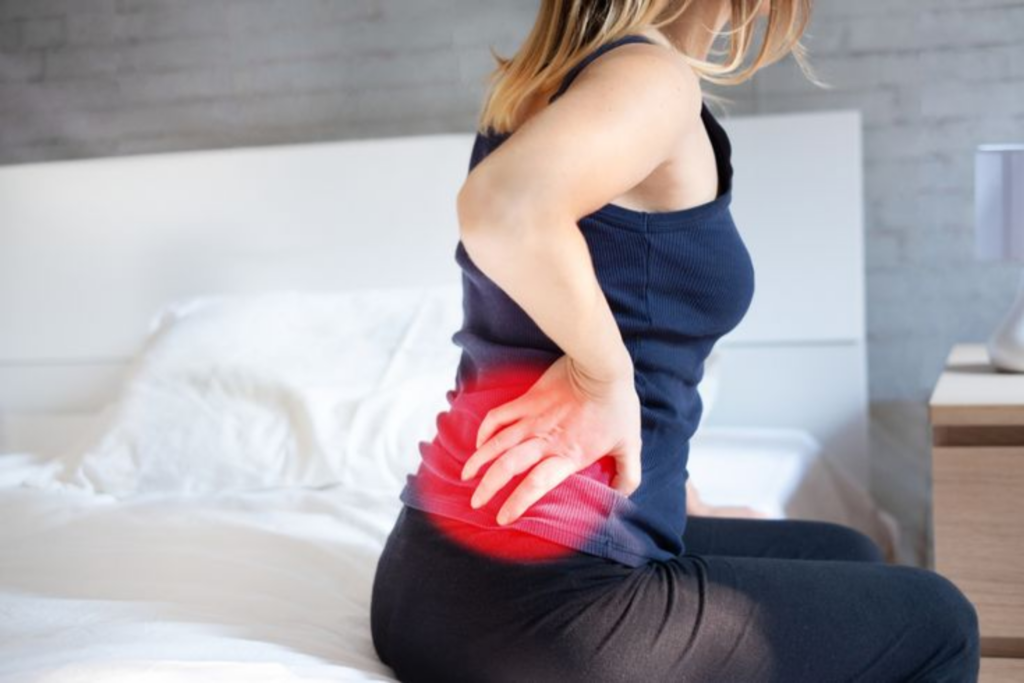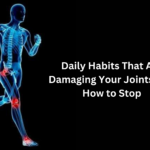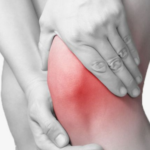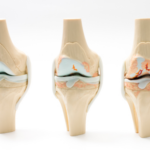
Waking up with aching hips or struggling to find a comfortable sleeping position due to hip pain can be incredibly frustrating. For many people, hip pain at night is a common issue that affects sleep quality and overall well-being. Whether it’s a dull ache or a sharp pain that flares up when you roll over, nighttime hip discomfort shouldn’t be ignored.
Let’s explore the possible causes of hip pain during sleep and what you can do to find lasting relief.
Common Causes of Hip Pain While Sleeping
1. Sleeping Position
The way you sleep plays a major role in your joint health. Sleeping on your side without proper support can cause compression of the hip joint or misalignment of the spine and pelvis.
Solution:
Try sleeping on your back or switching sides regularly. If you’re a side sleeper, place a pillow between your knees to align the hips and reduce pressure.
2. Hip Bursitis
Bursitis is the inflammation of the small fluid-filled sacs (bursae) that cushion your hip joints. Lying on the affected side can aggravate the pain.
Solution:
Avoid sleeping on the painful side. Use a soft mattress or mattress topper to reduce pressure on the hips. Anti-inflammatory medications or physical therapy may also help.
3. Arthritis
Osteoarthritis or rheumatoid arthritis can cause hip stiffness and pain, particularly during periods of inactivity like sleep.
Solution:
Gentle stretching before bedtime and using heat therapy can ease stiffness. If the pain persists, consult an orthopedic specialist for long-term management.
4. Tendinitis
Overuse of the hip flexors and surrounding tendons from activities like running or climbing stairs can lead to tendinitis, which causes pain especially at night.
Solution:
Rest, ice packs, and stretching exercises can help reduce inflammation. It’s also important to avoid strenuous activity until symptoms improve.
5. Sciatica
Sciatica occurs when the sciatic nerve is irritated, often causing pain that radiates from the lower back into the hip and down the leg — especially noticeable when lying down.
Solution:
Use a firm mattress and avoid soft cushions that don’t support the spine. Strengthening your core and lower back through physical therapy may provide long-term relief.
6. Pregnancy-Related Hip Pain
Hormonal changes and increased body weight during pregnancy can shift pelvic alignment and strain the hips.
Solution:
Pregnant women can benefit from body pillows designed to support the belly and reduce hip pressure. Gentle prenatal exercises and regular movement throughout the day can also help.
Simple Tips to Ease Hip Pain at Night
- Choose the right mattress: A medium-firm mattress can offer a balance of comfort and support.
- Use supportive pillows: A pillow between your knees or under your lower back can improve spinal alignment.
- Stretch before bed: Gentle hip stretches can relieve tension and improve flexibility.
- Apply heat or cold packs: Heat can relax tight muscles, while cold packs help reduce inflammation.
- Maintain a healthy weight: Reducing excess weight can decrease pressure on your hip joints.
- Stay active during the day: Low-impact activities like walking or swimming can keep your joints flexible and reduce stiffness.
When to See a Specialist
If your hip pain:
- Wakes you up frequently
- Persists despite home remedies
- Affects your ability to walk or perform daily tasks
- Is accompanied by swelling or numbness
…it’s time to consult an orthopedic specialist.
A proper diagnosis is essential to understand whether the pain stems from joint issues, nerve problems, or muscle imbalances. Early intervention can help you avoid further joint damage and improve your quality of life.
Treatment Options
Depending on the underlying cause, treatment may include:
- Physical therapy
- Pain management with medication or injections
- Lifestyle and ergonomic changes
- In severe cases, surgical intervention such as hip replacement may be recommended
Modern advancements in orthopedic care, including robotic-assisted joint replacement, offer faster recovery and improved long-term outcomes — especially when performed by experienced specialists.
Summary
Hip pain while sleeping can rob you of restful sleep and energy during the day. But the good news is, most causes of nighttime hip discomfort are manageable with the right approach. Understanding the source of your pain and making targeted lifestyle changes can make a significant difference.
If you’re experiencing persistent hip pain, it’s best to consult a qualified orthopedic expert. Dr. Saurabh Giri, one of the leading orthopedic surgeons in Pimple Saudagar, Pune, at Helios Orthojoint, provides specialized care for joint-related conditions. With a focus on personalized treatment and advanced orthopedic solutions, Dr. Giri helps patients get back to pain-free living — and sleeping — sooner.




